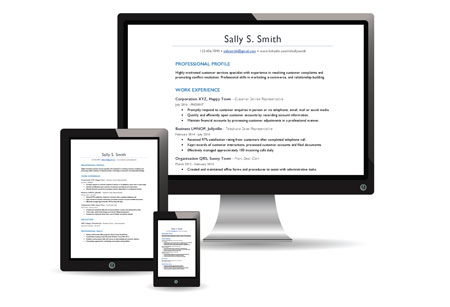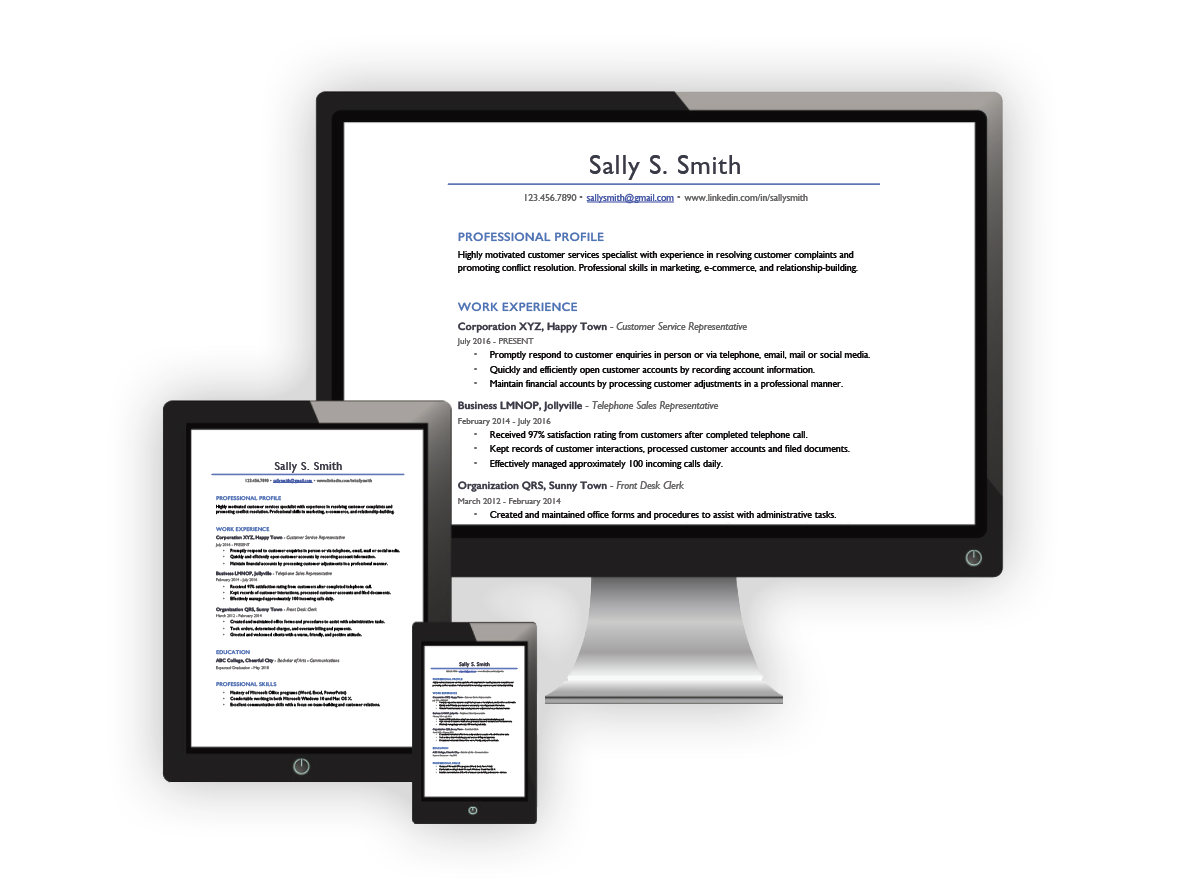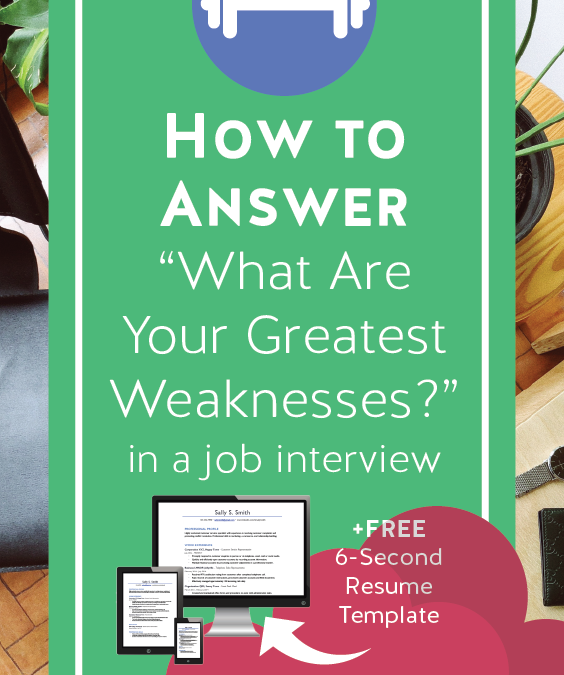Today, you’re going learn how to answer one of the most commonly asked interview questions: “What are your greatest weaknesses?”
Because this question can be one of the most intimidating, I’m going to show you how to properly answer it with confidence and control.
If you stay with me, I’ll give you an exact response that you can use when it’s time for you to answer this popular interview question.
If we’ve never met before, I’m Heather Austin from ProfessorAustin.com and The Career Club on Facebook, and here, I share simple solutions to help you build a business or launch a career you love.
The 6-Second Resume

Your resume is one of the most important documents you’ll create in your lifetime. Download your own free resume template to make yours stand out!
Before we tackle the best method for answering the question, “What are your greatest weaknesses?,” there are a few things to remember:
First – This question is asked because interviewers want to gauge your self-awareness. They want to know how you see yourself, and they want to get a good idea of your personality and your character. So when it comes to answering this question, relax and be yourself.
Second – This question comes in many forms. You might see it as “What are your weakest skills?,” or “Tell me about a time you failed,” or “What area would your current boss say you need improvement in?”
No matter the form this question comes in, use these tips to give your best possible answer. Let’s jump into it!
Tip #1 – Be Honest
The last thing you want to do is make something up. This will only make it harder for you to be yourself while answering this question.
Pick a few common and legitimate weaknesses that you can mention that don’t directly correlate with the position you are applying for.
You may need to review the job posting ahead of time as well, to find weaknesses that do not match up with the qualifications, skills, or experience listed.
For example, if the position you are applying for is a customer service representative, you probably don’t want to mention that you are not great at sales.
However, you could mention that one of your weaknesses is public speaking or creative writing. Also, don’t find a strength and turn it into a weakness; for example, don’t say, “I’m a perfectionist,” or “I’m a really hard worker.”
Interviewers will see right through this. And don’t mention anything personal, such as “I’m terrified of spiders.” Keep your answer professional and relevant.
This question is normally asked with another popular question: “What are your greatest strengths?” So make sure you take a look at the video I made about that.
Tip #2 – Keep It Positive and in the Past
Find a weakness that you can discuss that is in the past and then explain in a positive light. Be able to build a constructive story around it without actually mentioning the word “weakness.”
For example, if you struggle with creative writing (and creative writing is not a skill needed for the position you are applying for), you can mention that there was a time when creative writing wasn’t your strongest suit but that you’ve always been a fantastic technical writer.
Tip #3 – Show Improvement
You must be able to demonstrate what you are doing or what you have done to overcome this weakness. You may highlight a course you enrolled in, a workshop you attended, or a behavior you changed.
This shows that you are willing to take initiative to overcome and fix your weaknesses. Another key point here is to discuss the results you’ve seen because of the actions you’ve taken.
Example Answer
Here is one way you can answer this question tying all of these tips together:
“In the past, I had to overcome my creative writing ability. I’ve always been a strong technical writer; however, it used to be more challenging for me to write fictional stories.
To improve my creative writing skills, I enrolled in a creative writing class. “Each week, I submitted a paper to my instructor to get feedback. I also had the opportunity to critique my classmates’ work.
Going through this process opened up my eyes to different writing styles, and I now find it easier to use my imagination to write.”
Now, if you want to turn your interview into a two-sided conversation, take a look at this video I made all about questions you should ask your interviewer during your next interview.
The 6-Second Resume

Your resume is one of the most important documents you’ll create in your lifetime. Download your own free resume template to make yours stand out!

The 6 Second Resume
Enter your name and email address to gain instant access to your free resume template. Your next job is on its way!
